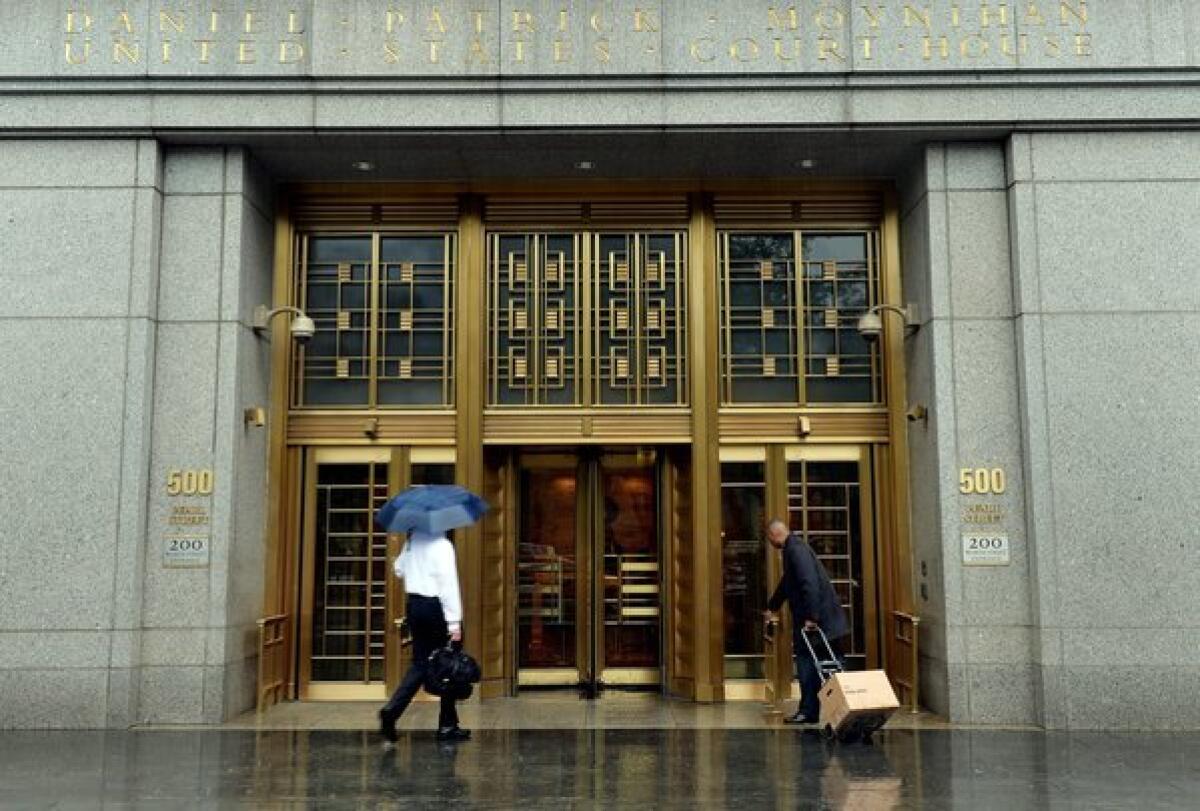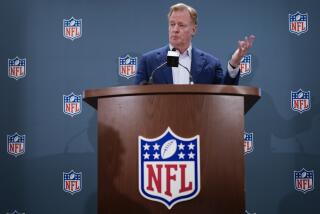Apple âdid nothing wrong,â says attorney in e-book case

The Department of Justice began presenting its case against Apple Monday in a New York City courthouse. âApple knowingly and actively participated in a scheme to raise e-book prices,â DOJ lawyer Lawrence Buterman said.
Apple is the last defendant standing in the DOJâs case, which alleges Apple and five of the six major publishers conspired to raise the price of e-books. All of the publishers have reached settlement agreements with the DOJ rather than go to court.
So why is the computer maker there? âApple is going to trial because it did nothing wrong,â Apple attorney Orin Snyder said.
Snyderâs opening statement lasted three hours, writes Laura Hazard Owen. He asserted that Appleâs deals with publishers were hardly cooperative; he said they were âcontentious and hard-fought ... in some cases knock-down, drag-out fights,â Owen reports.
Apparently, it was a long day; the Department of Justice also made an extended opening argument. It made an 80-page presentation that included emails from Apple and diagrams of relationships between the companies.
Those communications between Apple and publishers took place out of the public eye in advance of the launch of the Apple iPad. The tablet would include Appleâs first store for e-books, the iBookstore, and publishers and Apple discussed how the books would be priced.
Publishers had been quietly unhappy with Amazonâs e-book pricing, which appeared to be an effort to establish $9.99 as the standard cost of an e-book. This was below the wholesale price, which it continued to pay publishers. While Amazon absorbed the loss, the low price point was unsustainable in the rest of the publishing ecosystem, such as brick-and-mortar booksellers and e-book retailers without Amazonâs deep pockets.
Print booksellers saw sales drop. Buyers used their bookstores as âshowroomsâ and then left -- or sometimes stood in aisles with smartphones -- to purchase those books online. Publishers imagined that Amazon might stop absorbing the loss and pass it on to publishers, forcing them to lower their wholesale prices for e-books.
At the time, Amazonâs Kindle dominated the market -- 90% of all e-books sold were Kindle e-books in January 2010. Apple launched the iPad and iBoosktore in April 2010.
Apple and publishers agreed to an âagency modelâ rather than traditional retail/wholesale. Under the agency model, publishers can set e-booksâ end price and Apple, the retailer (âagentâ), takes a fixed percentage. Under this model, publishers actually made less than they had with Amazon.
On Tuesday, Kevin Saul, an Apple attorney involved in making deals for Appleâs music, TV and books, told the court that Apple was âindifferentâ to the terms sale publishers had with other retailers. âWe wanted to treat everybody on a level playing field such that big publishers would be treated the same as small publishers,â Saul argued. âIt was all about Apple and our ability to launch a bookstore that would be the best on the planet.â
ALSO:All eyes on Apple as e-book price-fixing trial begins
Why William Bennett doesnât think you need to go to college
The history of Charles Dickens (sort of) via the Smiths (sort of)
Carolyn Kellogg: Join me on Twitter, Facebook and Google+
More to Read
Sign up for our Book Club newsletter
Get the latest news, events and more from the Los Angeles Times Book Club, and help us get L.A. reading and talking.
You may occasionally receive promotional content from the Los Angeles Times.









